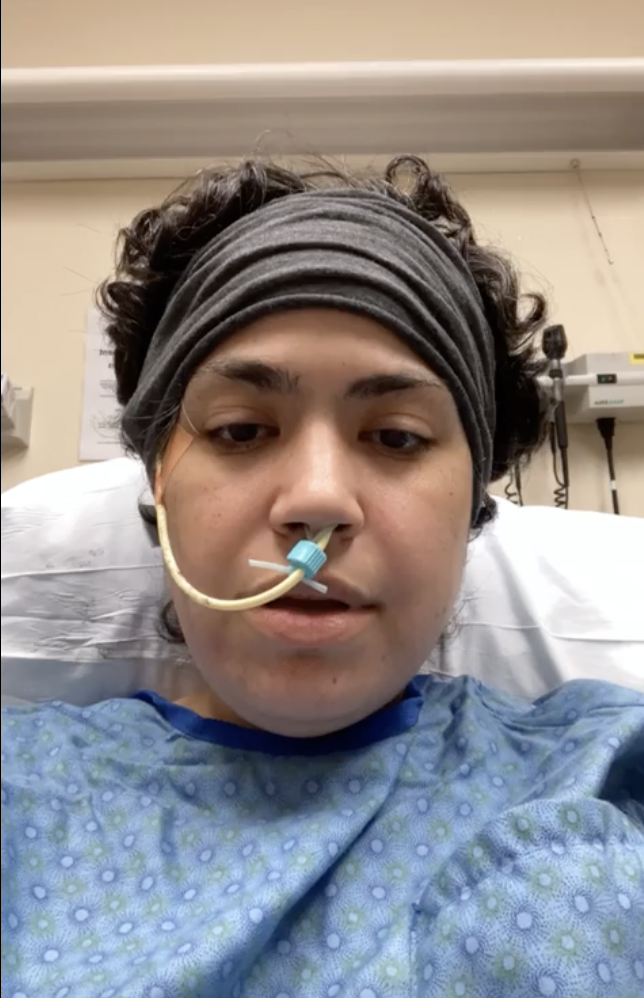 By: Jonathan Livingston
By: Jonathan Livingston
Until I was 13, I never knew what rape was. I was introduced to the word rape in the most unusual of circumstances. While under the influence of alcohol, a man who my aunt had been dating for six months tried to seduce my younger aunt while my older aunt, the one he was dating, was asleep. From what I can remember about this experience, my older aunt hit him on the head with a lamp, woke up her older sister, and called over my uncles. In the aftermath, the man woke up in the hospital with 6 broken ribs, a broken arm, and had to be fed through a straw. This was my first experience with the word rape. From this experience for much of my early adolescence, I, like many Black people, assumed that rape was not prevalent in the Black community.
As I began to mature and date “sisters”, they began to share with me their most intimate secrets, and whether such secrets where divulged late at night on the couch while I held them, trembling in tears, or confessed in a muffled and somber tone over the phone, I found that an overwhelming number of the women I had dated had been raped or molested at some point in their lives. Not willing to admit that which was most obvious, I began to question whether I was attracting such women because rape, as I understood it and pulling from my frames of reference at that time, did not happen neither was it accepted in the Black community. However, as I grew older and began to work in clinical settings and honestly review the events that shaped my perception of sexual assault in the Black community, I realized that my family’s response was an anomaly. I suggest that such an incident is unusual because, all too often, Black women don’t report rape to their families or the police.
Black women’s reluctance to report such crimes may, at times, be due to fear, shame, and the pervasive perception that Black women are promiscuous and loose. In Paula Giddings’ article, The last taboo, she indicates that an often overlooked fact is that, historically, Black men were thought to be incapable of these sexual crimes against Black women, because of the so-called lascivious character of Black women. Historically, Black women have been portrayed by White culture as sexually aggressive and morally corrupt.
Such an assertion was and has been promoted all throughout this culture whether it be through popular music or television. There is a pervasive assumption that Black women are sexual promiscuous. Not until recently have we began to see Black writers and scholars challenge this assumption and set things straight about Black female sexuality.
To further challenge this negative assumption, it would be easy for me to present statistics comparing the sexual behavior and practices of Black woman with that of other women, but a brief inquiry among men who date sisters, as well as women from other ethnic groups, would reveal the truth regarding this issue. To make it plain, Black women, historically, have always been sexually conservative compared to that of their counterparts. In fact, the sexual revolution experienced by many White women was not experienced by most Black women, because being promiscuous in the Black community is, and always has been, too costly. The influence of the church and the shame brought upon one’s self and the family for such behavior have been major influences in the lives and decision making of many Black women. This is not to say that I agree with such impingements or that such impingements should hinder Black women from expressing their sexuality as they please. I am just purely stating the facts concerning this issue.
Although many in our community know this assumption about Black women to be false, the effects of rape and molestation have devastating and demoralizing impacts upon the women in our community. Black women who I have had the opportunity to work with in the counseling/therapeutic settings each speak to the impact that this experience has had upon them. The reoccurring nightmares, overwhelming anxiety, panic attacks, and the pervasive guilt and shame of feeling that somehow they are to blame for the assault are all symptoms that the sisters in our community speak of as they try to put together the pieces of their lives. For those young women who, at such a tender age, have had their innocence taking by a sick older male, perhaps a brother, uncle, stepfather, or even biological father, the outcomes are the same. Having their innocence taken at such a young age has lead many of these women to engage in drugs, hyperpromiscuity, and severe problems in their relationships with men.
Over the years, we’ve seen programs created, primarily by practitioners working in White communities, to address sexual assault, and with all the programs geared towards preventing rape espousing the messages of what women should or should not do, where they should or should not go, what they should or should not say or wear to prevent rape, such programs, although well intentioned, are still blaming the victim. To truly address the culture of rape, you have to transform the minds of men. In doing so, men have to begin to view women not as objects for their aggression but as valued equals and essential parts of our community and humanity as a whole. Additionally, if you are going to talk to women about rape and what they can do to prevent it, then it is critically important for women to refrain from buying music or supporting musicians who degrade and disrespect women with their misogynistic themes. Programs designed to prevent rape should be about the business of teaching mothers to raise young men who respect and cherish women. Moreover, if you are to address rape at a cultural level, you have to challenge the male dominated culture in which our women exist, and as Kalamu ya Salaam, a Black male writer, points out, “As long as male domination exists, rape will exist. Only women revolting and men made conscious of their responsibility to fight sexism can collectively stop rape.”
To transform a rape culture, we have to challenge the assumption that rape is a crime of passion. Rape is a crime of aggression and power. Rape or molestation in the Black community is that of a politically-oppressed male engaging in a heinous and ungodly behavior, which results in the stealing or taking of a Black female’s humanity, self, and personhood in an effort to satisfy the sick needs of a sick person. This is not to say that his oppressed state excuses him from such insane behavior. In fact, if he truly understood his history, culture, and social location, he’d find that Black women, throughout slavery and Jim Crow, had been raped by his very oppressor. This fact is so eloquently articulated in Beverly Guy-Sheftall’s book, Words of fire: An anthology of African American feminist thought, where she states that Black women’s bodies have been sites of controversy since Europeans first set foot on African soil to appropriate free labor for the brutal system of slavery. Since that time, she suggests that myths about Black female sexuality, born on the African continent, have followed Black women to the “New World” and have and continue to help justify their sexual exploitation.
African American men, understanding the sexual subjugation of Black women all throughout history and the pain and suffering that many quietly continue to experience, must understand that the rape and molestation of Black women are ungodly acts that not only shatter the lives of our women, but they also compromise and undermine the vitality and survival of the Black community. No longer can we, as Black men, accept such behavior from these so-called men in our community. Thus we as Black men must protect the innocence and integrity of our young girls and women in our community by any means necessary.
Suggested readings: Words of fire: An anthology of African American feminist thought Surviving the silence: Black women’s stories of rape (Charlotte Pierce-Baker), Transforming a rape culture (Emilie Buchwald, Pamela A. Fletcher, Martha Roth), I’m telling (Karen E. Quinones Miller)
February 23, 2003 – March 5, 2003 Edition



